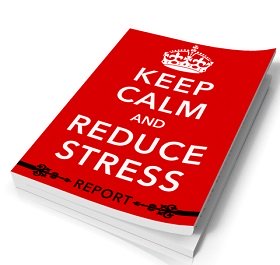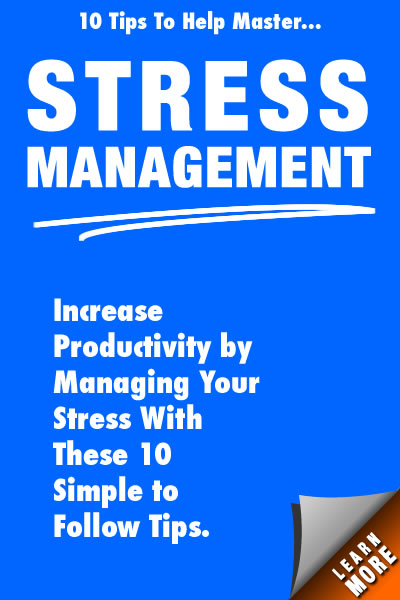Symptoms of Stress
Symptoms of stress vary among individuals but they are tell-tale signs that your body and/or your mind is reacting to an overload of demands that you are no longer able to comfortably handle. If you are experiencing long-term, or chronic amounts of stress, your body is likely to react by succumbing to a stress related illness--chronic headaches, heart disease, high blood pressure, ulcers, or muscles tension. Long-term stress wears down the body's reserves and leaves it feeling depleted.
Under prolonged stressful situations the immune system becomes compromised with no energy left to fight infections. Emotional stress-related illnesses can occur if you are experiencing a severe life trauma such as a job change, divorce, handling a schedule overload with school and work, or becoming a parent for the first time.
People experience stress in different ways and with different levels of intensity. You have seen people who, when under stress, get angry or take out their stress on others. You have seen people who internalize their stress, and may develop an eating disorder or become depressed. Left unchecked, stress can also precipitate more chronic illnesses that become more serious.
If you can identify the symptoms of stress, then you can manage them. We have listed below some of the most common symptoms that can occur during stressful situations. Realize that a stressed person is not likely to experience all of these symptoms and that even one can be a sign of stress. If you are experiencing any of the following, it could be a sign that you are being affected by stress.
What are the Symptoms?
Here is a List of Emotional Stress Symptoms
- Anxiety and panic attacks
- Feeling constantly pressured, hassled or hurried
- Feeling more irritable or short tempered than usual
- Feeling frustrated at having to wait for something
- Feeling tired all of the time
- Worrying excessively and finding it difficult to relax
- Thinking about negative things all the time
- Tearfulness
- Having pronounced mood swings
- Reduced ability to concentrate, forgetfulness
- Sadness or depression, feeling "blue"
- Feeling that you can't cope
- Finding it difficult to make decisions
- Feeling restless
- Lack of sense of humor
- Drinking too much, smoking, overeating, or doing drugs
Here is a List of Physical Stress Symptoms
- Headaches
- Low back pain
- Pain in shoulders or back
- Pounding or racing heart
- Sweaty palms
- Diarrhea
- "Butterflies" in stomach
- Muscle spasms or nervous tics
- Allergic reactions, such as eczema or asthma
- Problems sleeping
These are a few of the many ways that stress can affect your mind and your body. When under high levels of stress, you may find it difficult to stop and notice your body's responses. If you are extremely tense and anxious, you should try to find out why. It might be caused by your work, relationship, or home life. Whatever it is, the symptoms of stress are telling you to make changes.
What Is the Definition of Stress?
Join Calm Starts Here, and receive FREE How to Get a Good Night's Rest and Stop Worrying.
Share this Page on SheToldMe.com
Become a FaceBook Fan










